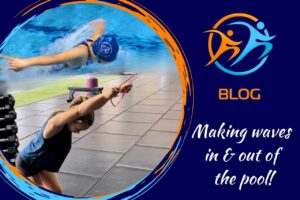An Olympic sport since the first Games of the modern era in 1896, swimming has always aroused great interest among both the public and the medical scientific community. Through the diversity of its disciplines, and especially because it is practised in an unnatural environment for people, swimming has always been the subject of a great deal of sports-medicine research. This research, both biomechanical and biophysiological, has brought about an improvement in athletes’ conditions and training equipment and, consequently, their performances.
The truth is that the world of competitive sports is far from static and is constantly changing. Significant change has resulted from recent advances in science and technology. Sport science and medicine play a very important part in the performance of a swimmer. Science can maximize potential and help fine-tune the athlete, making small improvements in the swimmer’s performance, which is often significant as just a few hundredths of a second can decide the result of races.
Historically competitive swimmers have trained to improve swim performance by swimming frequently, for long durations at various intensities. Recently, coaches and swimmers have looked outside the pool for training methods which may offer additional benefits to performance beyond those which can be gained from swimming alone. At Fitter Futures Athlete Academy, emerging athletes can access specialised strength and conditioning programs specifically tailored to each athlete. Tiny tweaks to technique can improve flexibility, strength, and efficiency in the water—and result in faster times.
Proper technique can also help swimmers avoid injuries. In addition to the performance gains associated with strength training, it is important to consider the injury preventive aspects of integrating strength training into the swimmers’ preparations. The need for early and regular strength training arises from the observation of overuse injuries typical of swimming. The development of maximum strength is the basis for power needed in starts, turns and swimming.
After identifying techniques to improve, the next step is to start a regular practice of drills and exercises. Certain exercises target specific skills or abilities, such as weightlifting for building strength. Athletes regularly perform drills to perform overall swimming performance with exercises that target:
- Form
- Strength (including specific muscular development for short-distance sprinting and longer-distance performance)
- Flexibility
- Endurance
- Range of motion
- Balance and stability
- Neuromuscular control
- Body awareness in the water
Learning to swim fast is not a matter of a single, isolated moment of insight or accomplishment but the result of much dedicated training. With time, reflection, and a training routine that adapts to changing needs and swim goals, swimmers have all that they need to get stronger and faster—and ultimately achieve their personal bests. In a sport where victory is often determined by a fraction of a second, it’s obvious why one of the most sought-after secrets is how to swim faster. However, as the world’s most renowned coaches, athletes, trainers, and researchers know, there is no secret—just science and here at the Fitter Futures Athlete Academy, we aim to help athletes achieve their personal best while having fun in a safe environment.

